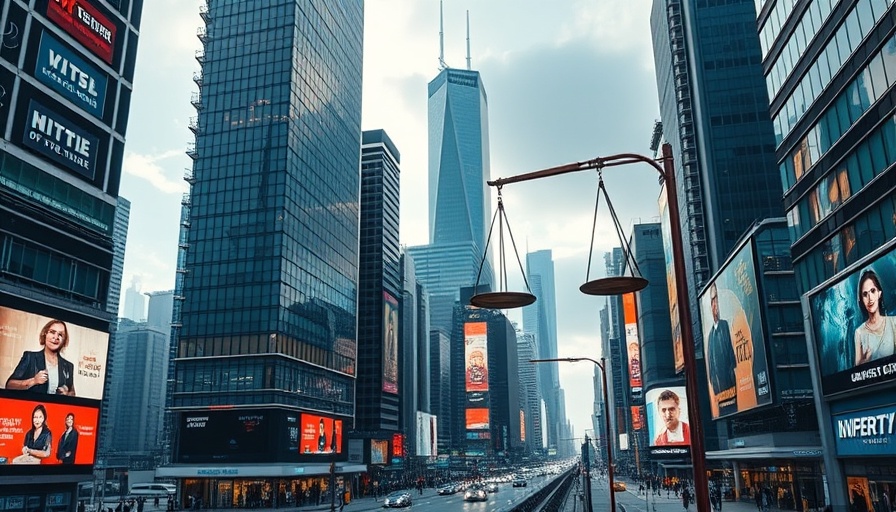
Understanding the Impact of AI on Writers
In a landmark move, Anthropic has reached a $1.5 billion settlement in a copyright class-action lawsuit, providing payment to around half a million writers. However, many argue that this hefty sum is merely a form of corporate acknowledgment, failing to address the crucial issues surrounding the use of copyrighted material in training AI models. As companies harness AI technologies to generate new content, a pertinent question arises: What does this mean for the original creators whose works are utilized without consent?
The Precedent of the Bartz v. Anthropic Case
The lawsuit known as Bartz v. Anthropic highlights a growing legal framework concerning the copyright implications of AI training. In this case, a federal judge found that using copyrighted materials could qualify as 'transformative,' thus protected under fair use. This controversial decision creates a precedent for other companies, potentially paving the way for broader use of copyrighted content without proper compensation for authors. Critics worry this legal stance effectively legitimizes tech companies' claims to use writers’ works while undermining the livelihood of those same individuals.
The Creative Community's Dilemma
Authors and creators are facing an existential threat from AI platforms that consume their work to generate content. With the rise of AI, the writing landscape is changing dramatically. Despite the financial compensation from the lawsuit, many writers feel their intellectual property rights are being disregarded. This situation ignites a deeper conversation about the value of creative work versus the relentless drive for technological advancement.
The Dichotomy of Compliance and Innovation
The illustration of this case serves as a mirrored reflection of how innovation can sometimes trample on established rights and creative expressions. For instance, the rapid development of AI chatbots requires a wealth of data to enhance their performance, yet this means exploiting existing works without appropriate credit or recompense. While tech companies argue that their AI’s outputs are transformative, many creators perceive it as a direct threat to their original creations.
Future Implications for Copyright Law
The implications of this case raise significant questions about the future of copyright law as it intersects with technology. The ruling has sparked concerns among writers that their rights may be further eroded in favor of tech innovation. As new cases pop up picking apart copyright's boundaries, one must wonder how far these interpretations will stretch and what protections will remain for content creators moving forward.
A Call for Awareness and Action
In light of these developments, it’s crucial for writers and creatives to stay informed about their rights and the ongoing evolution of copyright law. Engaging in discussions about fair compensation and advocating for updated regulations can help ensure that creativity is supported rather than suppressed in this new AI-driven landscape. As technology continues to evolve, the role of human creativity in the digital realm should be protected with robust legal frameworks that hold corporations accountable.
This settlement may look like a win on the surface, but for many writers, it presents a challenge steeped in ongoing ethical debate. Awareness of these complexities can empower creators to protect their work while navigating this unpredictable future in the literary sphere.
 Add Row
Add Row  Add
Add 



Write A Comment